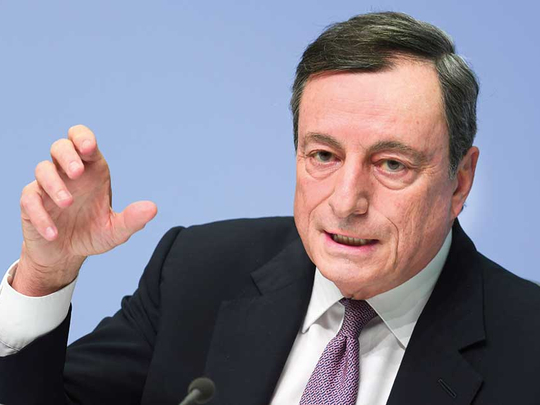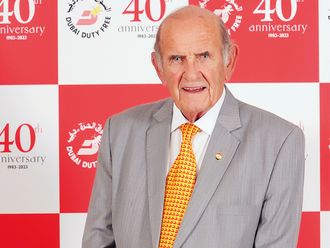
FRANKFURT
European Central Bank chief Mario Draghi warned on Thursday that the surge in the euro was a source of uncertainty and said the bank might have to review strategy if US comments on a weak dollar lead to a change in monetary conditions.
Investors were eagerly awaiting Draghi’s comments on the euro after ECB policymakers kept interest rates and guidance unchanged, all the more since US Treasury Secretary Steve Mnuchin on Wednesday talked of the benefits of a weak dollar.
This triggered a rally in the euro to three-year highs, threatening the ECB’s policy of pushing Eurozone inflation higher.
Mnuchin said at Davos this week he welcomed a weak dollar, arguing that it was good for US trade, and Commerce Secretary Wilbur Ross said “US troops are now coming to the ramparts” in global trade wars.
Asked at his news conference about the prospect of a global currency war, Draghi reaffirmed bank policy not to target a given exchange rate.
“We don’t target exchange rates. Exchange rates are important for growth and stability ... they strengthen as the economy grows — that’s just a fact of life. We look at inflation, that is our main concern.” But without being specific, Draghi said the euro had risen partly because of “the use of language in discussing exchange rate developments that doesn’t reflect the terms of reference that have been agreed”.
That was a reference to last October’s International Monetary Fund meeting in Washington where countries had agreed they would “refrain from competitive devaluations and ... not target our exchange rates for competitive purposes”.
“If all this were to lead to an unwanted tightening of our monetary policy ... then we will have to just think about our monetary policy strategy,” Draghi said, noting that several ECB Governing Council members had expressed their concerns.
The euro rose as much as 0.8 per cent to $1.2515 against the dollar and Eurozone government bond yields rose across the board.
Earlier, in a widely expected decision, the ECB kept its key interest rate deep in negative territory, maintained a pledge to hold rates steady until well after bond buys conclude and promised to continue asset purchases until a sustained rebound in inflation.












